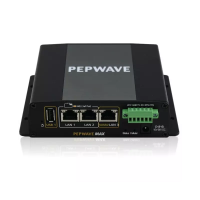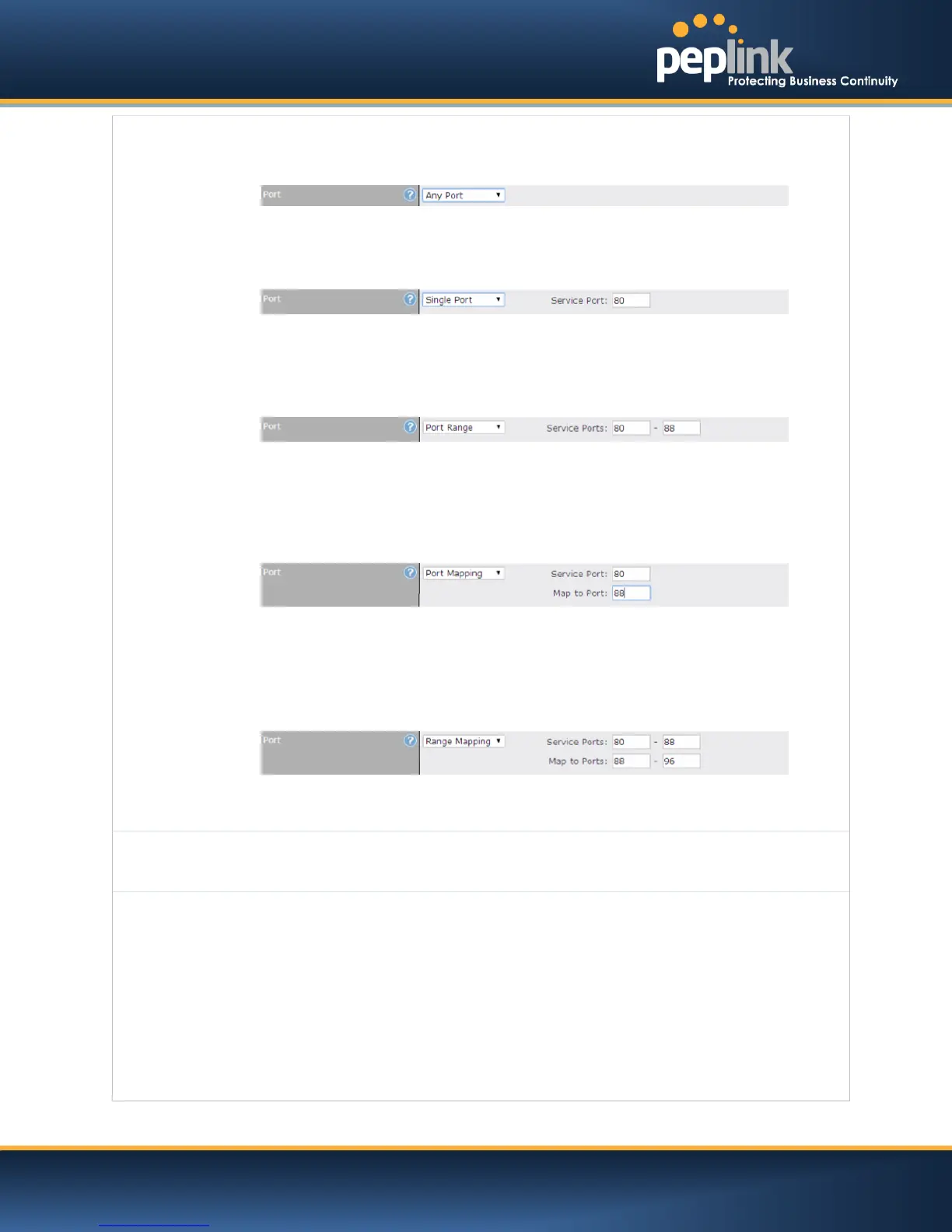The Port setting specifies the port(s) that correspond to the service, and can be configured to
behave in one of the following manners:
Any Port, Single Port, Port Range, Port Map, and Range Mapping
Any Port: all traffic that is received by the Peplink Balance via the specified protocol is
forwarded to the servers specified by the Servers setting.
For example, if IP Protocol is set to TCP and Port is set to Any Port, then all TCP traffic will
be forwarded to the configured servers.
Single Port: traffic that is received by the Peplink Balance via the specified protocol at the
specified port is forwarded via the same port to the servers specified by the Servers setting.
For example, if IP Protocol is set to TCP, Port is set to Single Port, and Service Port is set
to 80, then TCP traffic received on Port 80 will be forwarded to the configured servers via port
80.
Port Range: traffic that is received by the Peplink Balance via the specified protocol at the
specified port range is forwarded via the same respective ports to the LAN hosts specified by
the Servers setting.
For example, if IP Protocol is set to TCP, Port is set to Port Range, and Service Port set to
80-88, then TCP traffic received on ports 80 through 88 will be forwarded to the configured
servers via the respective ports.
Port Mapping: traffic that is received by the Peplink Balance via the specified protocol at the
specified port is forwarded via a different port to the servers specified by the Servers setting.
For example, if IP Protocol is set to TCP, Port is set to Port Mapping, Service Port is set to
80, and Map to Port is set to 88, then TCP traffic on port 80 is forwarded to the configured
servers via port 88.
(Please see below for details on the Servers setting.)
Range Mapping: traffic that is received by Peplink Balance via the specified protocol at the
specified port range is forwarded via a different port to the servers specified by the Servers
setting.

